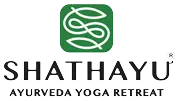Blood pressure is the force exerted by circulating blood against the walls of the arteries, the major blood vessels in the body. Extremely high blood pressure, or hypertension, poses a major health threat by raising the likelihood of stroke, heart attack, dementia, and kidney failure, among other conditions. According to the most recent research, 1.28 billion adults (those aged 30–79) worldwide have hypertension. It is a leading global killer.
Who is Vulnerable to Hypertension?
Unhealthy eating habits (too much salt, too much-saturated fats, not enough fruits, and vegetables), lack of exercise, use of tobacco products, excessive alcohol consumption, and being overweight are all preventable risk factors. Non-modifiable risk factors include family history, age above 65 years, and co-existing medical illnesses like diabetes and renal failure. Common complications include cardiac failures and sudden Myocardial infarction, stroke and renal impairment.
KNOW YOUR NORMAL LEVELS-
The American Heart Association categorizes the ranges of blood pressure as Normal; 120/80 mm Hg.
If your readings fall within this range, continue to practice heart-healthy behaviors such as eating a balanced diet and exercising regularly. Elevated; readings routinely range between 120 and 130 systolic and fewer than 80 diastolic mmHg; likely to develop hypertension unless actions are made to control it.
Hypertension stage 1– 130-140 systolic and 80-90 diastolic; medications are required at this level.
HTN Stage 2 -values of 140/90 mmHg or higher; a combination of antihypertensives and lifestyle changes are recommended.
The final range is a hypertensive crisis, in which blood pressure values reach 180/120 mmHg and are associated with organ damage symptoms such as chest pain, shortness of breath, and back pain, as well as cardiac morbidity and mortality. Requires emergency medical attention.
ANTIHYPERTENSIVES
Antihypertensives are a class of drugs that are used to treat hypertension. The most widely used medications are Thiazides, diuretics, Calcium channel blockers, and ACE inhibitors. They are associated with side effects, secondary effects, and toxicological effects on long-term use. Common SE’s are- Infertility, weight gain, headaches and constipation
CERTAIN EXCEPTIONS FOR BP LEVELS
Typically, blood pressure begins to rise many hours before awakening. It continues to increase throughout the day, reaching its peak at noon. Usually falls during the late afternoon and evening. Even more so at night. Stress and night shifts can also increase the levels. Additionally, caffeine, alcohol, and processed foods are associated with an abnormal rise in blood pressure. In clinical settings, blood pressure readings are monitored using manual devices and sphygmomanometers.
AYURVEDA and HIGH BP
Ayurveda, the science of life includes therapeutic treasures that can treat various disease ailments. It stands out by its holistic approach toward the body as one single entity. Defects in sodium homeostasis are a major pathology involved in hypertension, therefore vitiation of pitta and rakta due to excess salt consumption can be considered as an etiology.
Similarly, the vasoconstriction due to impaired hormonal actions is compared to dushti of pitta and the impaired functions of the autonomic nervous system can be seen as Vata dushti. The atherosclerotic changes can be related to the kapha dushti. Based on these points it can be deduced that hypertension involves one or all the tridoshas which in turn affects the Rasa and Rakta dhatus.
Ayurveda Treatments to Control High Blood Pressure
Ayurveda emphasizes prevention. Therefore, avoiding the disease’s etiological components is considered the first line of treatment. To balance weight, a low-sodium diet and regular exercise or yoga are required. Non-pharmacological approaches play a significant role in lowering morbidity and mortality, with Ayurveda playing an especially important role; several chapters in traditional works such as Dinacharya, Rutucharya, etc. are especially devoted to a healthy lifestyle.
The pharmacological drugs are meant to be mainly vatanulomaka, tridoshahara, rasa, rakta prasadakara, medohara and hridya in action. Few of the drugs are- Arujna(Terminalia arjuna) which is cardioprotective in nature due to presence of polyphenols. Amalaki(Phyllanthus embilca) enhances cardiac mitochondrial and contractile functions and ultimately combats hypertension. Riserpine is the functional phytoconstituent of sarpagandha (Rauwolfia serpentina), which is abruptly absorbed after ingestion. It acts the level of neuroendocrine cells and has affinity for VMAT2 and thereby creates normotensive action. Stress and anxiety are psychological causes of hypertension. Brahmi(Baccopa monerii) is wonder drug in reducing anxiety and associated symptoms. A few efficient formulations include- Mamsyadi kwatha, sarpagandhi ghana Vati, Brahmi Vati, prabhakara Vati, Arjunarishta and Abhayarishta.
In cases of hypertension, Panchakarma treatments may also be utilized. Virechana, basti, and raktamokshana are examples.
Shirodhara is believed to be an effective treatment for HTN. The liquids are poured over the frontal region in an oscillating stream for a predetermined amount of time. This results in constant pressure and vibrations, which stimulate the activities of the thalamus and forebrain, thereby decreasing the levels of serotonin and catecholamine (HTN-causing factors) and increasing acetylcholine, which has a direct impact on controlling high blood pressure.
CAN AYURVEDA WIN OVER HYPERTENSION?
Owing to the increasing cases of HTN and their morbidity and mortality ratios, there is a need to explore new treatment protocols for the same. Treatment of hypertension in Ayurveda is covered under the umbrella of Formulations, Single drugs, Panchakarma therapies, and lifestyle modifications- Diet and Yoga. This combined management paves way for treating the disease and its complications from the root, unlike the contemporary practice which only focuses on pharmacological aspects.
A NEW RAY OF HOPE!!
Hypertension can now be treated and prevented appropriately through the ancestral treasure of Ayurveda. It’s time to accustom to the holistic approach and enjoy the bliss of health and wellness and bid farewell to Hypertension and its complications.
Article by
Dr Lachita C V
BAMS MD

